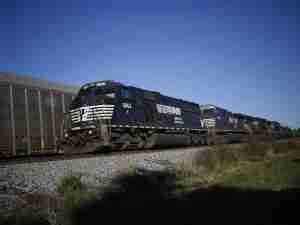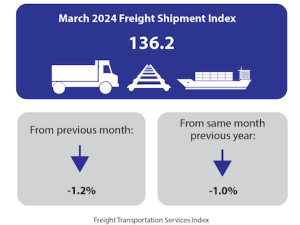Calling for a "new beginning" to reform the nation's transportation programs, the bipartisan National Surface Transportation Policy and Revenue Study Commission unveiled a comprehensive plan to increase investment, expand services, repair infrastructure, demand accountability, and refocus Federal transportation programs, while maintaining a strong Federal role in surface transportation. Policy changes, though necessary, will not be enough on their own to produce the transportation system the Nation needs in the 21st century. Significant new funding also will be needed.
Congress created the 12-member, bipartisan Commission in 2005 and it not only was charged with examining the condition and operation of the surface transportation system, but also with developing a conceptual plan and specific recommendations to ensure that the surface transportation system serves the needs of the nation now and in the future. After an intensive fact-finding program that included hearings in ten cities across America, the Commission released its Report to Congress, called Transportation for Tomorrow, at a news conference at the National Press Club in Washington, DC.
The Transportation and Infrastructure Committee of the US House of Representatives has scheduled a hearing on the Report on January 17, 2008.
Chaired by US Secretary of Transportation Mary Peters, the bi-partisan twelve member Commission also includes Jack Schenendorf, Vice Chair, Of Counsel, Covington and Burling, LLP; Frank Busalacchi, Secretary, Wisconsin Department of Transportation; Rick Geddes, Associate Professor, Department of Policy Analysis and Management, Cornell University; Steve Heminger, Executive Director, San Francisco Bay Area Metropolitan Transportation Commission; Frank McArdle, Senior Advisor, General Contractors Association of New York; Steve Odland, Chairman & CEO, Office Depot, Inc.; Patrick E. Quinn, Co-Chairman, US Xpress Enterprises, Inc.; Matt Rose, Chairman & CEO, Burlington Northern Santa Fe Railway; Tom Skancke, CEO, The Skancke Company; Paul Weyrich, Chairman and CEO, Free Congress Foundation.
The Commissioners unanimously agree that an efficient surface transportation system will be vital to the future economic growth, international competitiveness, and social well-being of the Nation. They also agree that major overhauls of current Federal surface transportation programs will be essential to achieve such a system. They did not agree, however, on all of the recommendations to reform and finance our surface transportation programs. Secretary Mary Peters (as Commission Chair), Commissioner Cino, and Commissioner Geddes provided a minority view to the report. Commissioner McArdle and Commissioner Rose each contributed an individual supplemental view.
The key recommendations in Transportation for Tomorrow include:
' Significantly increasing investment in surface transportation, including investing at least $225 billion annually from all sources (Federal, state, local, and private) for the next 50 years to upgrade to an advanced surface transportation system capable of sustaining strong economic growth;
- Accelerating the time between conception and delivery of major transportation projects to reduce costs while still addressing environmental concerns. Many federally-funded projects take between 10-13 years to complete after they are proposed, largely due to lengthy approval processes. Given the high rate of construction inflation, for example, simply reducing the time between conception of projects and delivery could save billions of dollars as well as bringing new facilities online more rapidly.
- Retaining a strong Federal role in transportation, while depoliticizing investment decisions. Keeping the promise to citizens for effective expenditures by building accountability into the new program structure. Money will be spent through outcome based, performance driven programs supported by cost/benefit evaluations ra








